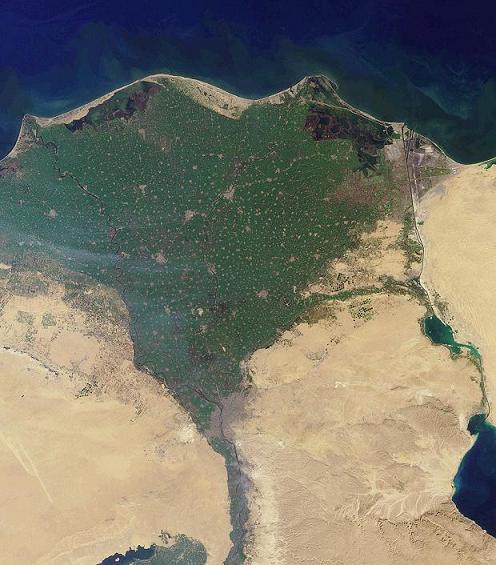Abu Ghalib: Loss of Land, Loss of Production, in Whose Interest?

Amid the confusion and distortion experienced by the Egyptian society after the revolution of 25 January, with the counter-revolutionary forces continuing to hold the reins of power here and there, loom the international financial institutions (IFIs). Led by the World Bank, the role of the IFIs increases the ambiguity of the current chance at self-determination for the Egyptian people.
From the perspective of many, the IFIs form a common front of foreign companies seeking profit at the expense of the impoverished citizens who, in spite of all sacrifices and consequences of economic globalization, remain faithful to their land and their traditional ways of local production. This is the case of a large number of citizens of the village of Abu Ghālib and the Qatā region, in the north of Giza Governorate, where the citizens of the region are affected by the establishment of the power plant in North Giza with funding from the World Bank.
Abu Ghālib and the Qatā region are host to a natural gas-powered power plant project that is estimated to cost $2.2 billion, with an estimated $840 million in funding from the World Bank. Additional funding comes from the European Investment Bank (EIB) and the Organization of Petroleum Exporting Countries (OPEC) Fund for International Development. The plant is located in an agricultural area along the Rosetta Branch of the Nile River, about 30 km northwest of Cairo, in the northern part of Giza Governorate. Local farmers are now suffering the diversion of the Nile flow, unanticipated loss of ground water sources, salinization of wells and soil, and the desiccation of crops and trees upon which their livelihood depends.
Local inhabitants have sought the assistance of civil society organizations interested in the conditions of the land and peasants, including the Egyptian Society for Collective Rights and the Egyptian Center for Legislative Reform, as part of the Housing and Land Rights Network - Habitat International Coalition. They are working together to enable farmers to address the financing and implementing parties concerned. They are formulating together the rights-based approach by applying domestic or international legal norms as a framework to the World Bank contract.
So far, two meetings between the World Bank and representatives of the affected families have taken place with the representatives of civil society organizations in question. The concerned parties are cooperating to verify with the local implementers any conflicting information related to the project and the damage done to the citizens. The civil society organizations also are helping the local community to assess the direct losses to their land-based subsistence: housing, water, livelihood and other basic rights, as well as and longer-term and indirect and long-term losses of employment opportunities, means of production and environmental assets that result from the power plant constructed in this agricultural zone. Two representatives of the Middle East and North Africa program of the Bank Information Center (BIC) also have joined the meetings from Washington DC. A statement about the case and the initial meetings can be found on HLRN News: Civil Society and Affected Population Raise Concern to the World Bank over Energy Project (in Arabic).
|